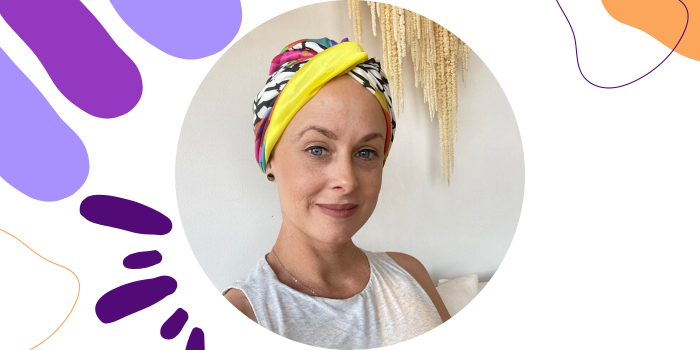At 38 years old, Sarah discovered a painful lump in her left breast. Initially, she thought it might be a hormonal cyst, given her period was due. Nevertheless, she chose to visit her GP for reassurance. During the examination, her GP felt something concerning and recommended a double-breast ultrasound.
The ultrasound confirmed that the lump in her left breast was indeed a hormonal cyst. However, it also revealed cancer cells in her right breast—an unexpected and distressing discovery, especially given her recent clean bill of health.
“My whole body went into shock; I was trembling when I heard the word cancer.”
Sarah was diagnosed with stage two HER2-positive breast cancer, requiring an intensive treatment plan involving chemotherapy, a double mastectomy and reconstructive surgery. Despite the overwhelming news, she is grateful for the swift response, which allowed for early detection and treatment. The cyst in her left breast unexpectedly led to the discovery of cancer in her right breast before it could progress further.
Starting chemotherapy in late October, Sarah underwent six demanding sessions over 18 weeks. Although she experienced a severe reaction during her first session that interrupted her treatment, she persisted with determination. To preserve her sense of normalcy, Sarah opted to use a cold cap to help retain her hair, managing to keep about 50% of it despite the discomfort during the treatment. After completing chemotherapy, Sarah shaved her head before having a double mastectomy.
Sarah’s support network—her FIFO partner of 10 years, sisters, parents and best friends—played a crucial role throughout her experience. They assisted with her two year old son, provided meals and offered emotional support. Initially, Sarah didn’t reach out to Breast Cancer Care WA (BCCWA), feeling overwhelmed by her immediate needs. However, after her mastectomy, her partner encouraged her to reach out.
BCCWA provided essential support, including assistance with groceries and electricity bills, which was invaluable during her recovery. They also facilitated contact with Cancer Council for additional help. Sarah valued the practical assistance and felt that a more proactive approach could have been beneficial earlier in her treatment.
After her double mastectomy, Sarah was stunned to learn from her breast surgeon that her cancer was entirely gone—an outcome she hadn’t anticipated. Initially preparing for radiation, she was then informed it was no longer needed. While relieved, she found it difficult to process the sudden change in her treatment plan and continues to see her oncologist regularly for reassurance. Despite ongoing immunotherapy every three weeks, she is no longer on any additional medication.
Post-treatment, Sarah faces challenges adjusting to life after cancer, including managing ongoing health needs and navigating the lingering effects like fatigue, sleep problems and brain fog. She has developed a deeper appreciation for life and is now more mindful of her health. Sarah advises others facing a similar diagnosis to focus on self-care, trust their medical team and seek ongoing mental health support.
Sarah’s experience highlights the critical importance of a comprehensive support system and proactive care. Breast Cancer Care WA played a vital role in her recovery, highlighting the importance of structured and timely support services for those facing the challenges of cancer treatment.

